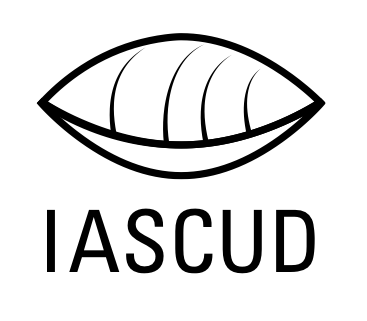
|

|

|

IASCUD at CLMPST, Prague, 5-10 August 2019
09:00-10:30 Session 28J: B3 SYMP Communication and exchanges among scientific cultures 1 (CESC-1). Sharing, recycling, trading, and other forms of circulation
Organizers: Nina Atanasova, Karine Chemla, Vitaly Pronskikh and Peeter Müürsepp
This symposium is predicated upon the assumption that one can distinguish between different scientific cultures. This is the founding hypothesis of the IASCUD commission. The distinction between these scientific cultures can be made on the basis of the bodies of knowledge actors uphold (which present differences depending on the culture) and the scientific practices they adopt; the distinct kinds of material environment that actors shaped to operate in these contexts and how they operate with them; and also on the basis of epistemological facets. Among the facets that appear to be useful to differentiate cultures, we include: epistemic and epistemological values; types of questions and answers that are expected; types of explanation and understanding that actors hope for. This approach to scientific cultures has the potential of allowing us to understand cultures as temporary formations and not as fixed entities.
The aim of this symposium is to focus on the types of circulation that can be identified between cultures conceived along these lines and also on how these various phenomena of circulation can help us approach the historicity of scientific cultures and of their relationship with one another. The issues we would like to address include the following:
• What can circulate between scientific cultures? We are interested in cases when knowledge and practices migrate from one culture to another. We are also interested in the borrowing of material elements and practices, as well as the adoption of epistemological choices and practices from one context into another. Events of this latter type have perhaps been studied to a lesser extent, but they seem to us to deserve specific attention.
• How does the circulation affect what is circulated? If we all agree that the adoption of an element of knowledge or practice in a different environment transforms this element, we lack a systematic approach to these phenomena of “recycling”.
• How does the circulation affect the adopting culture, and its relationship with the culture of origin? How can it elicit a reconfiguration of the scientific cultures in presence? The study of how actors revise their knowledge in the light of new elements falls for us under this broader category of questions. However, if we consider circulation in the wider perspective that we advocate, the issue of revision presents itself in a new light. In the symposium, we aim at promoting the study of revision more broadly.
CHAIR:
Nina Atanasova (The University of Toledo, United States)
LOCATION: Room 152+153
|
09:00 |
Madeline Muntersbjorn (University of Toledo, United States) Notations & translations as catalysts of conceptual change ( abstract ) |
|
09:30 |
Xiaohan Zhou (The Institute for the History of Natural Sciences, Chinese Academy of Sciences, China) Elements of Continuity in the Circulation of Mathematical Knowledge and Practices in Chapter "Measures in Square" in Mathematical Writings in China ( abstract ) |
|
10:00 |
Nicolas Michel (Université Paris-Diderot, France) Avatars of generality: on the circulation and transformation of list-making practices in the context of enumerative geometry ( abstract ) |
11:00-12:00 Session 29G: B3 SYMP Communication and exchanges among scientific cultures 2 (CESC-2). Circulation of epistemological elements
CHAIR:
Vitaly Pronskikh (Fermi National Accelerator Laboratory, United States)
LOCATION: Room 152+153
|
11:00 |
Xiaofei Wang (Institute for History of Natual Science, Chinese Academy of Sciences, China) The circulation of epistemic values between mathematical cultures: The epistemic values pursued by J.-L. Lagrange in his teaching of analysis at the Ecole Polytechnique ( abstract ) |
|
11:30 |
François Lê (Institut Camille Jordan - Université Claude Bernard Lyon 1, France) Communication and exchanges among scientific cultures: Sharing, recycling, trading, and other forms of circulation> Characterizing as a cultural system the organization of mathematical knowledge: a case study from the history of mathematics ( abstract ) |
14:00-15:00 Session 30G: B3 SYMP Communication and exchanges among scientific cultures 3 (CESC-3). Practices of communnication
CHAIR:
Peeter Müürsepp (Tallinn University of Technology, Estonia)
LOCATION: Room 152+153
|
14:00 |
Galina Sorina
(Lomonosov Moscow State University, Russia) The alienated/subjective character of scientific communication ( abstract ) |
|
14:30 |
Polina Petrukhina
(Lomonosov Moscow State University, Russia) High-energy physics cultures during the Cold War: between exchanges and translations ( abstract ) |
15:15-16:15 Session 31G: B3 SYMP Communication and exchanges among scientific cultures 4 (CESC-4). Comparing modes of recycling
CHAIR:
Karine Chemla (SPHERE-CNRS & University Paris Diderot, France)
LOCATION: Room 152+153
|
15:15 |
Fanglei Zheng (Tsinghua University, China) When Arabic Algebraic Problems met Euclidean Norms in the 13th Century – A Case Study on the Scientific Innovation by the Transformation in Cross-cultural Transmission ( abstract ) |
|
15:45 |
Michael Barany (The University of Edinburgh, UK) Experts and Expertise in North-South Circulation in Mid-Twentieth Century Mathematics ( abstract ) |
